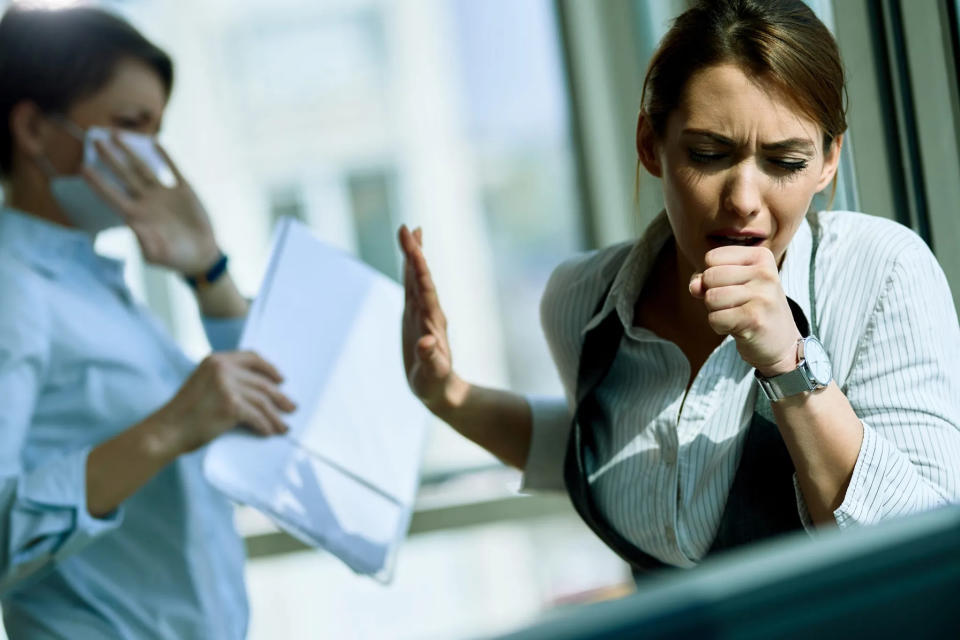Got COVID? Here are the new 2024 isolation guidelines

Two lines appear on the test card, 15 minutes after you’ve swabbed the depths of your nostrils and swirled the contents in a plastic tube. You’ve got COVID.
As recently as February, a positive rapid test would’ve meant five days of isolation, away from work, school, and/or other obligations that involve going out in public. Not anymore. In March, the Centers for Disease Control and Prevention (CDC) updated its COVID isolation guidelines based on symptoms, not time since testing positive.
The guidelines shifted in part to match those of other common respiratory viral illnesses, including the flu and respiratory syncytial virus (RSV). The CDC now says you’re cleared to resume normal activities when the following are both true for at least 24 hours:
Your symptoms are getting better overall
You haven’t had a fever (and aren’t using fever-reducing medication)
Bottom line: If you’re sick, stay home. If your symptoms persist, you may end up isolating for five or more days after all, but you’ll be doing your part to protect your loved ones, coworkers, and others in your community from infection.
If you absolutely can’t stay home while ill, be sure to wear a mask, says Dr. Robert Hopkins Jr., medical director of the National Foundation for Infectious Diseases (NFID).
“Those who have symptoms of a respiratory virus—cough, sneezing, body aches, nasal congestion with or without fever—should test for COVID-19—and influenza when influenza is circulating in their communities,” Hopkins tells Fortune via email. “If the test is positive, call a health care professional who may prescribe antiviral medication to help lessen their symptoms and the risk for severe illness.”
Paxlovid (nirmatrelvir with ritonavir), the oral COVID antiviral manufactured by Pfizer, cuts your risk of hospitalization by over half and risk of death by 75%, according to the CDC. The agency considers people with conditions such as asthma, diabetes, or obesity at high risk of severe infection, and therefore candidates for Paxlovid. Ask your doctor if this or another antiviral treatment is right for you.
View this interactive chart on Fortune.com
“To care about whether or not what you may do could sicken or injure another person, there’s a moral and ethical issue here,” Tuckson said. “Some of us want to be heroes and sheroes: ‘I was sick as a dog and I went to work anyway, and that shows you how tough I am.’
“As opposed to, the other narrative is, ‘Let me tell you how rude I am, and how willing I am to infect other people just to show you what a great ego I am.’ Which side of that equation do you want to be on?”
For more on COVID-19:
New COVID vaccines are here. What to know about latest shots in wake of nation’s biggest summer surge
Could it be COVID? Here are the symptoms to watch out for in 2024
Free, at-home COVID tests are back. Here’s how to order yours
Will the XEC COVID variant bring a fall wave of infections? What to know about symptoms and spread
This story was originally featured on Fortune.com